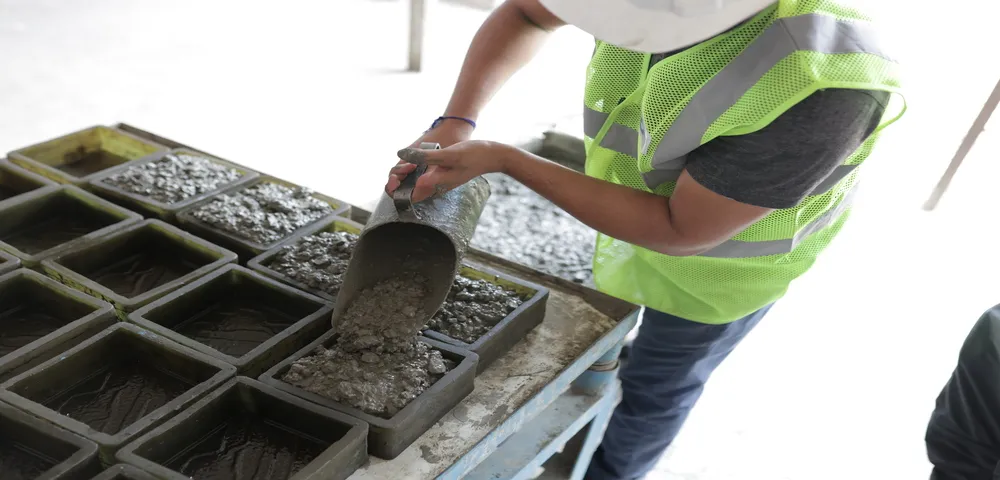- Our Story
- Our Impact
-
Our Projects
Residential
Commercial
- Careers
Building green homes: planet over profit
By Aun Abdullah
September 05, 2022Studies show that green buildings can save up to 30% of energy and 50% of water. Builders can switch energy use to renewable sources during the construction stage itself
As the second-largest employment generator, the contribution of the real estate sector to the growth of the national economy is not new. In recent times, with people realising the significance of owning homes, there has been a structural transformation in housing demand, further resulting in a boost to the sector. Validating the same is a recent report titled 'Real Estate Industry: Outlook and Challenges' by Infomerics Valuation and Rating, which states that the Indian real estate industry is on course for sustained high growth at over 75% Y-o-Y for the next three years. An IBEF report too highlights that the industry is expected to reach a $1 trillion market size by 2030 and contribute 13% to the GDP by 2025.
This scale of growth offers an unprecedented opportunity to move away from resource-intensive and archaic development approaches to a more climate-conscious and low-carbon approach. There is no reason of locking in immense amounts of carbon emissions in the urbanisation that happens during this decisive decade when the most aggressive decarbonisation is the need of the hour. Also, according to the UN Environment Programme, the construction and operation of buildings contribute to around 40% of the total global carbon emissions. Real estate can therefore be the medium of big change by its innate existence across all sustainability-driven concerns.
Eco-conscious solutions
There is a noticeable shift among present-day consumers to lead a sustainable lifestyle. Also, educated and responsible homebuyers are increasingly welcoming eco-conscious real estate solutions, besides preferring green-certified buildings by grade A developers. According to a CBRE South Asia report, India has witnessed a 31% increase in green real estate assets across the top six cities -- NCR, Mumbai, Pune, Hyderabad, Bengaluru, and Chennai -- in the last decade.
Studies show that green buildings can save up to 30% of energy and 50% of water. Through sustainable design, construction and operations, green buildings are climate-resilient, consume less water, optimally use energy, conserve natural resources, generate less waste, and enhance biodiversity. As a result, they ensure a better liveability quotient by providing better ventilation, adequate daylight, superior air quality, and overall well-being. From an economic viewpoint too, green homes reduce the operating costs of buildings, improve productivity and efficiency, and provide higher ROI, higher asset/rental value, rebates on property taxes, and savings on recurring costs like electricity, water, medical, etc., bills.
Developers need to set science-based decarbonisation targets. These targets also usher innovation and competitiveness in the field. Ultimately, saving resources saves costs and makes the development as well as the developer resilient to policy changes, thereby unlocking value and future-proofing growth. Developers must also consider climate science to evaluate the physical climate risks that affect the geography where they are developing their real estate.
Successful pilot projects can provide opportunities to scale up feasible solutions and achieve significant emission reductions. The entire process can be formulated in alignment with internationally recognised accounting and reporting standards like the GHG (greenhouse gas) Protocol. Tapping the entire building lifecycle is important in this regard; this can help provide clear targets for each impact category and project stage.
Friendly materials
For reducing GHG emissions and greening the project lifecycle, leading developers can also switch energy use to renewable sources during the construction stage itself. Circularity concepts like 'reduce, reuse, recycle' should be at the core while designing green projects with increased integration of environment-friendly construction materials. The government and regulatory bodies have also taken several steps to incentivise and encourage sustainable business practices within real estate. An allocation of ‚¹19,500 crores has been made by the central government in the Union Budget 2022 to boost the manufacturing of solar modules under its flagship production-linked investment (PLI) scheme. Both government policies and investors' focus are incentivising the developers engaged in climate adaptive and green developments. Furthermore, a partnership ecosystem is essential to achieve sustainability targets, with city regulators playing a key role in enabling the decarbonisation of the built environment along with investors, landlords, and occupiers. Wider stakeholder engagement helps ensure acceleration towards achieving net-zero targets.
With the 'planet over profit' dictum gaining prominence, sustainability as an economic risk has become the dominant discussion point across board rooms. Responsibly built green developments can contribute significantly to India's vision of reducing its total carbon emissions by one billion tonnes by 2030 and reaching its net-zero target by 2070. A JLL report titled 'Sustainable Real Estate: India's response to a greener future' reveals that 81% of respondents see real estate as a game-changer in achieving the sustainability agenda. As a rapidly transforming corporate landscape looks to align itself with the low-carbon economic agenda by adopting aggressive net-zero carbon goals, the real estate industry must stay afoot and be at the centre of these systemic developments for a greener future.
By Aun Abdullah, ESG Leader, Lodha
Published in The Hindu
You may also like



 Enquire
Enquire
 Call
Call
 chat
chat
 Search
Search




